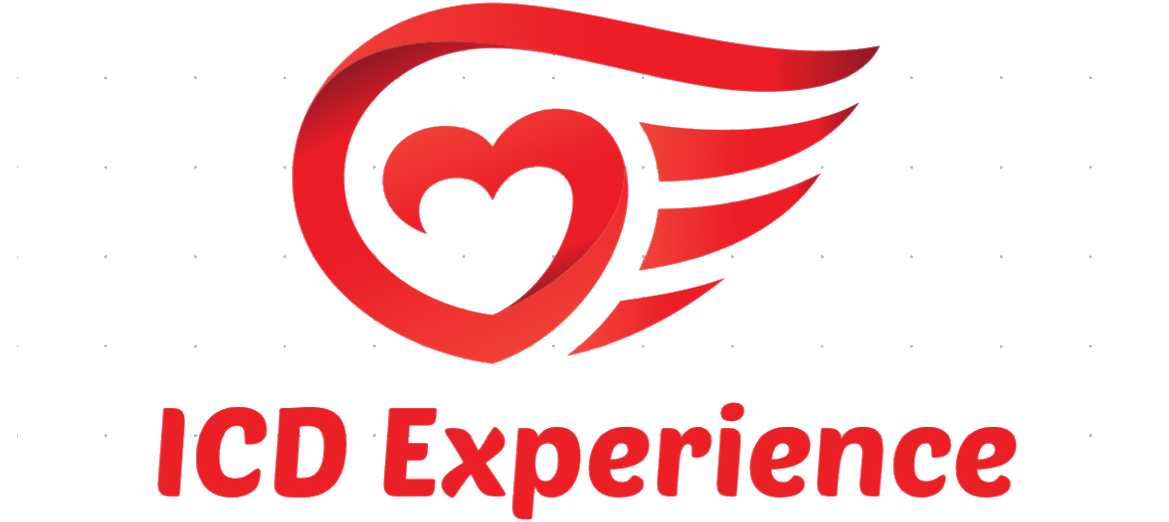Traveling is a wonderful way to explore new cultures, relax, and create lasting memories. However, for patients with an implantable cardioverter-defibrillator (ICD), the thought of traveling can be daunting. The good news is that with careful planning and the right strategies, you can travel safely and confidently with an ICD. This article provides essential travel tips for ICD patients, helping you prepare for a smooth and enjoyable journey.
Planning Ahead
Preparation is key to a successful trip, especially for ICD patients. Start by consulting with your cardiologist or healthcare provider. Discuss your travel plans, including your destination, duration of stay, and activities you plan to engage in. Your doctor can provide personalized advice and ensure that you are fit for travel. They can also help you understand any potential risks and how to manage them.
Before you leave, make sure to carry a copy of your medical records, including information about your ICD, your heart condition, and any medications you are taking. This documentation can be invaluable in case of an emergency. Additionally, obtain a letter from your doctor that explains your condition and the presence of your ICD. This letter can help you navigate security checks at airports and other transportation hubs.
Choosing Your Destination
When choosing a travel destination, consider factors such as the availability of medical facilities, the climate, and the level of physical activity required. Opt for locations with accessible healthcare services and ensure you know the location of the nearest hospital or clinic. If you are traveling internationally, research the quality of medical care in your destination country. Websites like the CDC’s Travelers’ Health provide valuable information on healthcare services abroad.
It’s also important to consider the climate. Extreme temperatures can affect your ICD and overall health. Avoid destinations with extreme heat or cold, as these conditions can increase the risk of complications. Instead, choose places with moderate climates that allow you to enjoy your trip comfortably.
Packing Essentials
Packing the right items is crucial for ICD patients. In addition to your regular travel essentials, make sure to pack:
- Medications: Bring an adequate supply of all your medications, including any over-the-counter drugs you may need. Keep them in their original containers with clear labels to avoid any issues at customs.
- Medical ID: Wear a medical ID bracelet or necklace that indicates you have an ICD. This can be vital in emergencies when you might not be able to communicate your condition.
- ICD Card: Carry your ICD identification card at all times. This card provides important information about your device and can be useful for medical personnel.
- Emergency Contact Information: Have a list of emergency contacts, including your cardiologist’s contact details, local emergency numbers, and the contact information of your travel companions.
- Travel Insurance: Purchase comprehensive travel insurance that covers medical emergencies and includes coverage for pre-existing conditions. Review the policy carefully to ensure it meets your needs.
Also read: Caregiver Perspectives
Navigating Airport Security
Airport security can be a source of anxiety for ICD patients. The good news is that you can pass through security smoothly with a few precautions. Inform the security personnel that you have an ICD and show them your doctor’s letter and ICD card. Most airports have procedures in place to accommodate patients with medical devices.
When passing through metal detectors, it’s generally safe to walk through at a normal pace. However, avoid lingering in the detector area, as prolonged exposure can interfere with your ICD. Alternatively, you can request a manual pat-down instead of passing through the metal detector. Body scanners, which use low-level radiofrequency, are also considered safe for ICD patients. If you have any concerns, don’t hesitate to discuss them with the security staff.
Managing Medications
Managing your medications while traveling is essential to maintaining your health. Keep your medications in your carry-on bag to ensure you have access to them at all times. This is particularly important in case your checked luggage is delayed or lost. Use a pill organizer to keep track of your medications and set reminders on your phone to ensure you take them on time.
Time zone changes can affect your medication schedule. Consult with your doctor about how to adjust your medication timings if you are traveling across multiple time zones. It’s important to maintain a consistent schedule to avoid any disruptions in your treatment.
Staying Connected
Staying connected with your healthcare team is crucial while traveling. Inform your cardiologist about your travel plans and keep them updated on your health. Many modern ICDs have remote monitoring capabilities, allowing your doctor to track your heart’s activity and the performance of your device. Check with your ICD manufacturer to see if this service is available to you.
In case of any health issues while traveling, don’t hesitate to seek medical attention. Familiarize yourself with the local emergency services and have a plan in place for how to access medical care if needed. If you’re traveling internationally, consider learning basic phrases in the local language that can help you communicate your medical needs.
Also read: How Does an ICD Differ from a Pacemaker?
Dietary Considerations
Maintaining a heart-healthy diet while traveling can be challenging, but it’s essential for managing your condition. Research the local cuisine of your destination and look for heart-healthy options. Many cultures have diets rich in fruits, vegetables, lean proteins, and whole grains, which align with heart-healthy eating principles.
Be mindful of portion sizes and avoid foods high in salt, sugar, and unhealthy fats. If you have dietary restrictions, communicate them clearly when ordering food. Many restaurants are accommodating and can modify dishes to meet your needs.
Hydration
Staying hydrated is crucial, especially when traveling to warmer climates. Dehydration can affect your heart health and overall well-being. Carry a refillable water bottle and drink plenty of water throughout the day. Avoid excessive consumption of caffeinated and alcoholic beverages, as they can lead to dehydration.
Managing Stress
Traveling can be stressful, and stress can have a negative impact on your heart health. Practice stress management techniques such as deep breathing, meditation, and mindfulness. Take time to relax and enjoy your surroundings, and don’t overcommit to activities. It’s important to balance exploration with rest to maintain your health.
If you start feeling overwhelmed, take a break and focus on calming activities. Listening to music, reading, or spending time in nature can help reduce stress.
Emergency Preparedness
Being prepared for emergencies is essential for ICD patients. Know the location of the nearest hospital or clinic and have a plan for how to get there if needed. Carry a list of your medications, medical conditions, and emergency contacts with you at all times.
If you’re traveling to a remote area or a location with limited medical facilities, consider carrying a portable defibrillator. These devices can be lifesaving in case of a severe arrhythmia. Discuss this option with your healthcare provider to see if it’s appropriate for you.
Insurance
Having comprehensive travel insurance is crucial for ICD patients. Ensure that your policy covers medical emergencies, including those related to your heart condition and ICD. Review the policy details carefully and understand what is and isn’t covered. Some insurance plans may require a medical assessment before providing coverage for pre-existing conditions.
Websites like InsureMyTrip can help you compare different travel insurance options and find a plan that meets your needs. Don’t skimp on insurance—it’s an investment in your peace of mind and safety.
Staying Informed
Stay informed about your destination and any potential health risks. The CDC’s Travelers’ Health website provides up-to-date information on health advisories, vaccinations, and travel health tips. Check for any travel advisories or health alerts before you leave and take necessary precautions.
Enjoying Your Trip
Ultimately, the goal is to enjoy your trip and create lasting memories. Don’t let the presence of an ICD hold you back from exploring the world. With careful planning and the right precautions, you can travel safely and confidently. Focus on the positive experiences and the joy of discovering new places.
Take lots of photos, immerse yourself in new cultures, and savor the moments. Traveling is a wonderful way to enrich your life and broaden your horizons. Remember that you are in control of your journey, and with the right mindset, you can overcome any challenges that come your way.
Conclusion
Traveling with an ICD requires careful planning and preparation, but it doesn’t mean you have to limit your adventures. By consulting with your healthcare provider, choosing suitable destinations, packing essential items, managing medications, and staying active, you can explore the world safely. Building a strong support system, staying connected with your healthcare team, managing stress, and being prepared for emergencies are all crucial components of a successful trip. Travel insurance and staying informed about your destination further enhance your safety and peace of mind.
Learn more: How to Maximize Your Implantable Cardioverter Defibrillator’s Performance
Building Confidence
Traveling with an ICD can be a confidence-building experience. More information on building confidence can be found here. Each successful trip can help reinforce your ability to manage your condition and enjoy life. Celebrate your achievements, whether it’s navigating airport security with ease, enjoying a new activity, or simply having a stress-free day. These small victories contribute to a positive mindset and increased confidence in your ability to handle future travels.
Joining Support Communities
Consider joining online support communities or forums for ICD patients. These platforms offer a space to share experiences, ask questions, and gain insights from others who understand your journey. Websites like ICD Experience provide valuable resources and community support. Engaging with these communities can provide practical tips and emotional support, making your travel experiences more enjoyable.
Reflecting on Your Journey
After your trip, take time to reflect on your experiences. Consider what went well and what challenges you faced. Use these reflections to improve your planning for future trips. Documenting your travels, whether through a journal, blog, or photo album, can also be a rewarding way to cherish your memories and inspire others in the ICD community.
Final Thoughts
Traveling with an ICD does not have to be daunting. With thoughtful preparation, a proactive approach to health management, and the support of loved ones and healthcare providers, you can enjoy the adventures and experiences that travel brings. Embrace the journey, stay informed, and remember that living with an ICD is just one part of your life. The world is full of incredible places waiting to be explored, and with the right strategies, you can safely and confidently discover them all.
For more in-depth insights, check out my book “Understanding ICD Implants: A Comprehensive Guide.”













One Comment